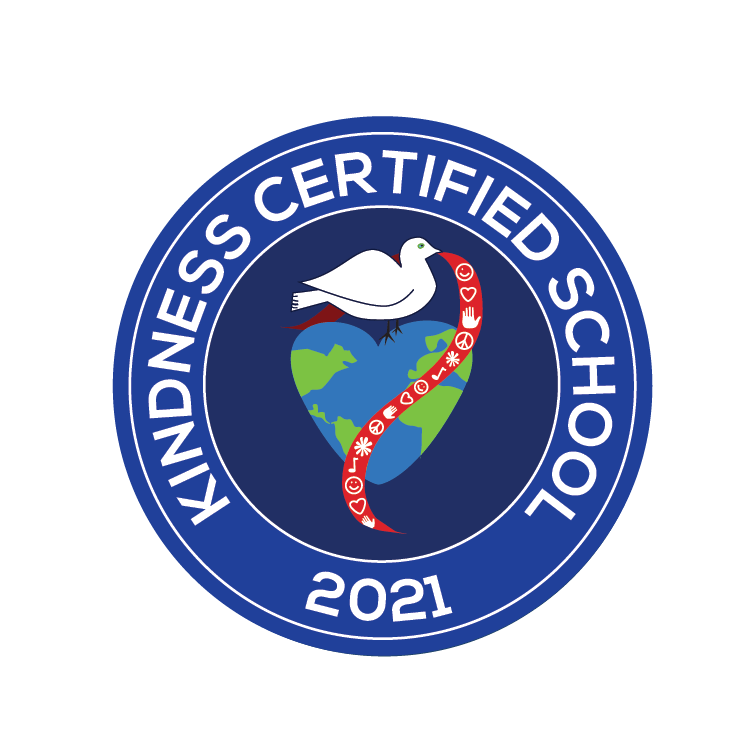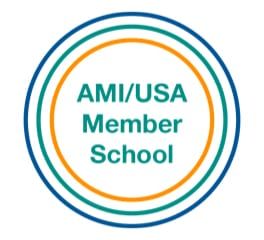Classroom Notes | September 2019
Ms. Crews’s Primary Classroom
As September draws to a close, we are settling into the rhythm of daily life in our classroom! Parents often ask how long it takes for children to adapt to the routine and schedule at school. Often by a child’s second day, she arrives knowing where to put her outdoor shoes and remembering to return work to the shelf! The truth is that very young children crave routine and order. External order provides predictability and helps support the internal order they are working hard to develop.
Helping a friend fill a pitcher
Three Part Work Cycle
In a traditional environment, a child walks up to an activity that has been prepared for him, does the activity, and walks away. In a Montessori environment, the gathering and putting away of a given activity are of equal importance to the work itself.
Children work with one material at a time, and only when the material has been returned to the shelf in its original condition (or better!) are they free to move on to something else.
We think about the “next friend” who will use something. How would they like to find it on the shelf? This is called the Three Part Work Cycle, and it is another part of our classroom routine that children quickly adapt to.
This mindset of social cohesion, along with the mixed age dynamic, is helping children learn to think about others, ask a friend for help, and solve their own problems. It is a joy to watch this process unfold. We look forward to welcoming parents into the classroom for observations beginning in October so that they can witness how we spend our days!
Ms. Hunt’s Primary Classroom
The first month of school is all about orientation as the children enter the classroom and begin to form a community. They orient physically (where everything is, establishing a daily routine), but they also build rapport with each other and with the adults. The youngest children last year are now older and become role models for those just beginning; the Kindergarteners orient to their roles as the leaders of the classroom. The three year olds say goodbye to their family each day, independently walking into school. For some, this is the first time they’ve done this in their entire lives and it is inspiring to witness! Children at this stage of development find security in the dependable routine of the day, in the firm and fair classroom expectations, and in the confidence and peace that the returning children project. Morning tears at drop off dry quickly as the child enters a prepared environment created expressly for her, where she can work with joyful calm and developing concentration.
Singing and poetry are two spoken language activities that further orient the children and lay the foundation for later language work. A few songs you might be hearing at home: “At the beginning”, “This is my school”, “Make new friends”, “This pretty planet”.
With the onset of the vernal equinox, the children are saying goodbye to summer with this poem:
“Bed in Summer”
by Robert Louis Stevenson
In winter I get up at night
And dress my yellow candlelight.
In summer quite the other way
I have to go to bed by day!
I have to go to bed and see
The birds still hopping on the tree,
Or hear the grown up people’s feet
Still going past me on the street.
And does it not seem hard to you,
When all the sky is clear and blue,
And I should like so much to play,
To have to go to bed by day?
Thank you to those that have donated time and resources to our school this far! Sewing and carpentry projects, doing laundry, sending in needed supplies of flowers and lemons, all enrich the prepared environment that the children thrive in each day. Your support is felt acutely by the staff and by the children.
Our September Parent Ed was all about self care in parenting; please remember to enrich your own life by taking time each day to care for yourself, to grant yourself grace, and to breathe. We look forward to supporting you and your family at the next parent ed night on October 10th!
Ms. Thompson’s Primary Classroom
The school year has begun and our classroom has been enjoying it to the fullest! We have taken advantage of the warm days by spending time in the garden. During this time children have been making spontaneous discoveries about nature, caring for the plants, and enjoying each others company. Together we have been harvesting from the garden and saving some of the seeds to plant next spring.
The children were excited to see old friends again and to meet new ones. Children that are returning to our class for their second or third year have been enthusiastically supporting the new students; teaching them how our classroom functions. The new students have come to understand how the classroom works and have made many social connections. Autumn is here and we look forward to the new explorations it will bring!
Ms. Lee’s Primary Classroom
The school year is off to a wonderful start. With the start of the school year comes myriad adjustments and acclimations. The children have eased into the rhythm of our school days and we’re expanding our morning and afternoon work cycles. Children have oriented to the environment, learning where all of their belongings go, where everything is located in our classroom, and all of our procedural routines. We have many procedures throughout our school day, and it’s been beautiful to see how quickly and wholly the children have acclimated to the routine. For example, children have learned how to use the toilet at school, where to keep all their belongings, how to set up for lunch, how to line up for recess, how to set up a rest mat, and much more. I’m struck by how seamlessly children pick up on the new routines, and I’m reminded of Maria Montessori’s explanation of the absorbent mind.
Maria Montessori writes about children’s way of learning, which is characterized as the absorbent mind. Here’s a quote from Dr. Montessori to explain what this means:
The child has a mind to absorb knowledge. He has the power to teach himself. A single observation is enough to prove this. The child grows up speaking his parents’ tongue, yet to grown ups the learning of language is a very great intellectual achievement. No one teaches the child, yet he comes to use nouns, verbs, and adjectives to perfection. … [In the first Montessori schools] we prepared a place for children where a diffused culture could be assimilated from the environment.
-Dr. Maria Montessori, from The Absorent Mind , pages 3-4
With this in mind, the classroom is set up to naturally support the child in absorbing his environment. One way the classroom supports the child’s refinement of language acquisition is through spoken language. We’ve been doing a lot of enriching spoken language this month: questions games, conversations, true stories, poems, books, and songs. You may even be learning some new songs from your child! A few of the songs we’ve been singing are “Mango Fandango,” “Sunflower,” and “Five Brown Buns.”
One last quick note: It’s perfectly normal and developmentally appropriate for young children under age 7 to “not remember” what they spent all their time doing at school each day. You may have noticed this if you’ve asked your child, “What did you do at school today?” and they responded with, “nothing,” or “I don’t remember.” It may be helpful to ask questions about their day in a way that’s more accessible for their minds to comprehend. You may want to ask “What’s something you did with your hands today?” or, “Which activities with water did you use in your classroom?”
Ms. Schiller’s Lower Elementary Classroom
The Trumpet Of The Swan
By Eliza R.
The book Ms. Schiller’s classroom is reading for Read Aloud is “The Trumpet Of The Swan” ?. It’s about a cygnet (a baby swan) who is born with no voice, who meets a boy named Sam Beaver, and the cygnet’s name is Louis. Louis’s father gets worried because Louis can’t speak, so he breaks into a music store to get a trumpet. ? He gives it to Louis, and eventually, Louis becomes anxious. He knows it is stolen. So he goes to Sam Beaver. Sam talks to him, and tells him that a camp called Camp Kookooskoos needs a bugler for the summer. Sam gives Louis a music book to study the notes he needs to learn. The part of the book we’re on is when they’re off to camp!? That’s all that we’ve read so far. Thank you for reading this!?
Red Fox Meadows
By Miriam K.
Ms. Schiller’s class went to a natural area called Red Fox Meadows last week on Thursday. We put on sunscreen and ate lunch first and then went on a little walk. We brought our sketchbooks too. We wanted to go to a very pretty place that we call the well. We found it, but the path to it was either blocked off or there was moss growing over it, so we decided not to go there. Instead we decided to go to a shady spot and sketch. We saw lots of birds and insects, and we saw lots of animals. Some of us even saw a deer! We all sketched lots of rocks and leaves and insects and trees. Then we circled around and went back to school. We also had our recess there because we left before recess. We were there for 2 hours. I thought it was pretty fun aside from the long walking.
Ms. Schiller’s students sketching at Red Fox Meadow
Research in Ms. Schiller’s Elementary class
Working and discovering together!
Ms. Arminio’s Lower Elementary Classroom
The year started off with a big bang! The students are eager to learn new lessons and handle the materials. The environment is prepared. The students are enjoying community.
During our work periods, we are writing stories using our spelling, reading books, practicing grammar, adding, subtracting, multiplying, and dividing. Fraction work is a favorite and finding equivalents or converting improper fractions has become quite popular.
The changing seasons allow us to explore rotation and revolution of the earth. Solids, liquids and gases are all around us and now we know why and how they work to make our lives interesting and better.
Our Earth is so important to our survival; therefore we are learning about it inside out. It is the only planet we know of that has just the right environment for plants and animals to live in.
Ms. Christiansen’s Upper Elementary Classroom
There is a lot of great work happening in upper elementary. Students continue to amaze me with their stamina and creativity! The children are working hard each week to write a five paragraph essay in answer to a classic philosophical question. Two of the questions we’ve discussed are Plato’s classic, “Are you a fair and just person?” and “Will having fun make you happier than studying?” , asked by Brittish philosopher John Stuart Mill. The children are working hard to write strong thesis statements on which to build their essays and we are having rich classroom discussions. Please ask your child each Tuesday what the new question is. I invite you to hear their ideas and share your own with them.
All of the children have been having rich discussions about their book club selections. Our five groups have been working on comprehension, vocabulary, understanding literary devices and more while enjoying reading great literature!
The entire class has completed their first report, and some children have been following up with art projects and some are planning going outs to further their understanding. If you are interested in being a driver/chaperone on a going out, please reach out to the office for details.
The fifth years are working hard to prepare for our upcoming trip to FCMS’s first trip to EcoWeek at CSU’s Mountain Campus. The children learned how to take detailed notes and have begun to write a comprehensive research paper on Colorado biodiversity. They will have the opportunity when we are in the field to ask our instructors questions, participate in ecology classes and experience Colorado’s amazing biodiversity. It will be an unforgettable experience!
Math and geometry work is as individual as our students. Many children are refining their word problem solving skills and learning new strategies. Children are adding decimals and fractions, dividing really big numbers and figuring the circumference of circles larger than our earth! Your child’s nightly math fact practice supports all of this big work and increases their confidence to try more challenging math.
We have begun our study of the cosmos and all that it holds, as we do each year in elementary, with Great Stories. The children have heard the Coming of the Universe and The Coming of Life. Some children are looking at cells under the microscope, learning about volcanoes, studying planets and we are all singing a lot of songs about plants and animals. Some children are studying the Sumerians and the Egyptians, some of our most creative ancestors. Others are studying how humans have met their fundamental needs over time.
Children have been delighted to receive art lessons about perspective and pointillism. Many children have also been receiving ukulele and tone bar lessons. Both provide more opportunities for creative follow ups and a way for children to ground themselves.
A large part of our work these first 6 weeks has been building community and trust. This is accomplished, in part, by our afternoon peace circle. Each day, we spend time discussing the needs of our community, resolving any issues and sharing our gratitude for each other. The ‘big work’ of upper elementary is refining work habits, and finishing the self-construction that occurs in childhood. Challenging children with big work, big ideas and giving them the support to discover how they learn and manage their time best is what we do each day.
The post Classroom Notes | September 2019 appeared first on Fort Collins Montessori School.











